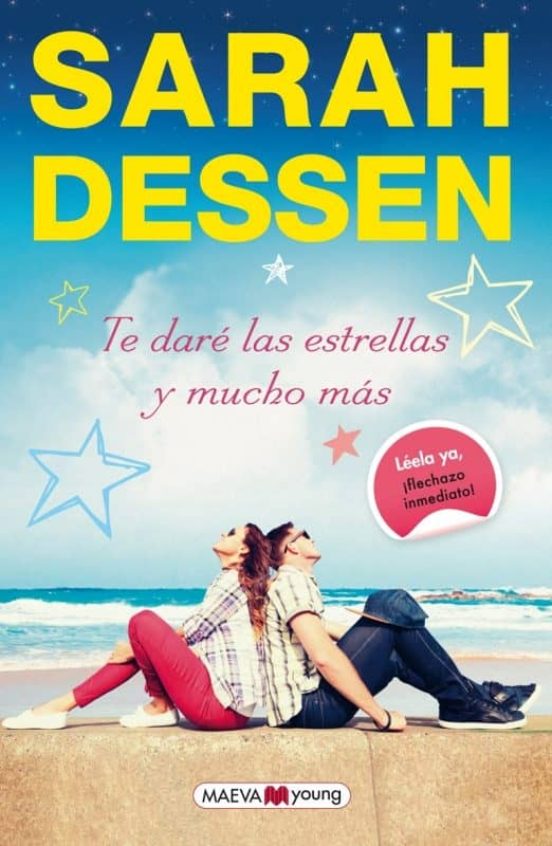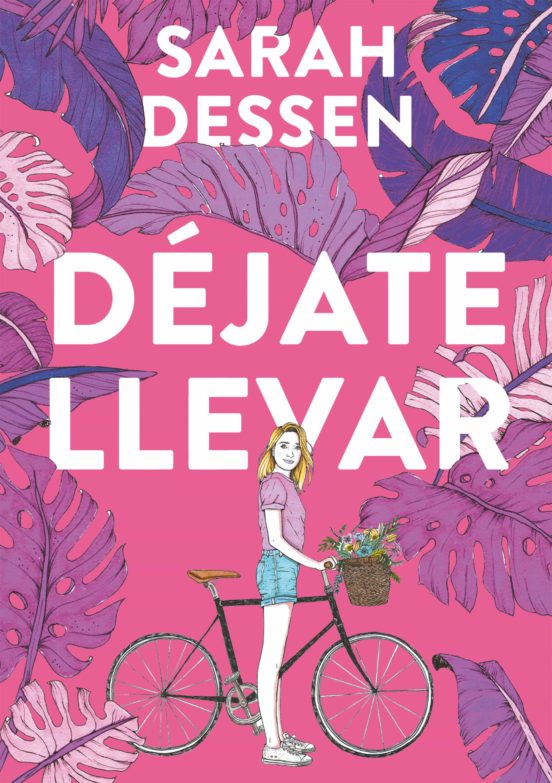¿Que te apetece leer?
.jpeg)
It is a pleasure to talk to you again after our first interview in 2013. Luckily for us, six other books of yours have been translated into Spanish since then. What have these seven years meant to you?
Seven years! Wow. I think the main thing of the last few years has been writing, and trying to tell the stories that I want to tell. Also raising my daughter: seven years both feels like a blink and a lifetime. It's been quite a ride.
The Rest of the Story, your new publication, deals with Emma's fear of taking charge of her life. How did this story come to your mind?
In March of 2018 I went to Paris for a book festival with my family, the first time I'd traveled overseas since I was very young. I've always been a nervous traveler and I expected to be homesick. But what surprised me is what I was missing: these little things about my home in North Carolina that I'd always kind of taken for granted. Sometimes it does take leaving home to realize how much it means to you, how a place can have so much meaning. I wanted to write about that, and Emma's story just followed.
Along for the Ride came out this month in our country. What can you tell our readers about it?
I wrote Along for the Ride when my daughter was a very little baby. I'm always in bed by 10:30, but I was suddenly up at all hours. I was so surprised by how many people were also up and even out doing things. It was like an entire other world existed that I hadn't even known about. I started thinking about why someone might not want to sleep and the things that keep us awake. Also, there are lots of bicycles, pie and some of my favorite female characters, like, ever. All my books are close to my heart, but this one was special.
In our previous interview, when asked about any new adaptations following How to Deal, you said that "no one has been that interested. I am always hopeful, however!" We recently found out that Netflix will adapt three of your books. Congratulations! Is there anything you can tell us about these projects?
I have been sworn to secrecy on most details! But I can say that things are moving along and a script is being worked on. I may get in trouble for even saying that! I should shut up now. :)
We are fascinated by your ability to tackle complex and challenging topics in a warm and hopeful tone. How do you manage to combine both things? Is this light-hearted approach intentional?
I think, more than anything, that I want to believe that overall things work out. I can't imagine writing a story that ended with heartbreak and sadness. How do you move on from that? We need hope. You can write about hard things and still emphasize that things do change, people change, no feeling or situation is forever. We are all just doing our best. It's all we can do. And I want to believe in good, now more than ever.

There is no doubt you give us the most heart-warming endings. Nonetheless, you surprised readers with the end of The Moon and More. Would you want to say anything about it?
I don't want to give too much away! But I will say this: I love a walking-into-the-sunset-with-your-true-love ending as much as anyone. But not all stories are the same. The happiest ending won't look the same every time. And that's a good thing.
You often say that once you finish a book, you believe you won't be able to write again. Especially after publishing Saint Anything. How do you overcome impostor syndrome?
I'm still working on it, to be honest. After every book I feel like I can't do it again. Right now, I'm working on something but it's hard, like always. Ugh. I am always trying to find a way to make writing less grueling. I think what I really need is a LONG break, but that's scarier than anything. (Dear God, this is like a therapy session. Sorry!)
Your characters like to visit each other's stories, and Colby appears as the setting of more than one book. However, the most recurrent theme in your work is the summer. In your latest novel, The Rest of the Story, we enjoy it in an idyllic lake. Why does this season provide so much material?
I've always loved summer. I think it comes from when I was a teen, and the months between June and August were so full of potential. School ended, people went off to camp or on trips, and by the fall they'd changed in ways you never expected. For me, it often felt like I waited all year for something to happen, and in summer, it would.
 Since your debut with That Summer in 1996, the literary landscape has changed wildly, both for young adult and romantic books. Now, there is an openly feminist intention; LGTB+ vindications and social minorities are finally getting their space... Has this movement had any influence on your approach to writing? Did you notice any difference behind the scenes (libraries, publishers, literary agencies...)?
Since your debut with That Summer in 1996, the literary landscape has changed wildly, both for young adult and romantic books. Now, there is an openly feminist intention; LGTB+ vindications and social minorities are finally getting their space... Has this movement had any influence on your approach to writing? Did you notice any difference behind the scenes (libraries, publishers, literary agencies...)?
It's a whole different world! My first book came out in 1996, and there wasn't even a YA section in the bookstore, only "children's books," which meant teens had to wade through board and picture books to find stories that appealed to them. And there were very few, if any, books about LGBTQ teens or teens from non-white backgrounds. Seeing yourself on the page is a validation beyond measure. It makes you feel real. As a white woman, I feel like I have a lot to learn still about representation in my books. I'm working on it, and trying to pay attention and try to show the world as it really is.
Emma, Remy, Annabel, Mclean, Macy, Colie... all your main characters are unique, young women. They face various challenges, and each of them reacts following their personality. Still, they share an exceptional trait: they build up their self-esteem to overcome those problems. What would "your girls" like to say to your young readership about self-esteem, growing up and facing challenges?
I think they'd say the same thing I tell myself every time I get down, which is that you don't have to be perfect. Life is messy. All you can do is your best in any given situation. So, try. Fail. Cry and laugh and scream. Just keep going because there's just so much beauty and hope always, even if you have to squint to see it. So do that. It's what living, really living, is all about.











